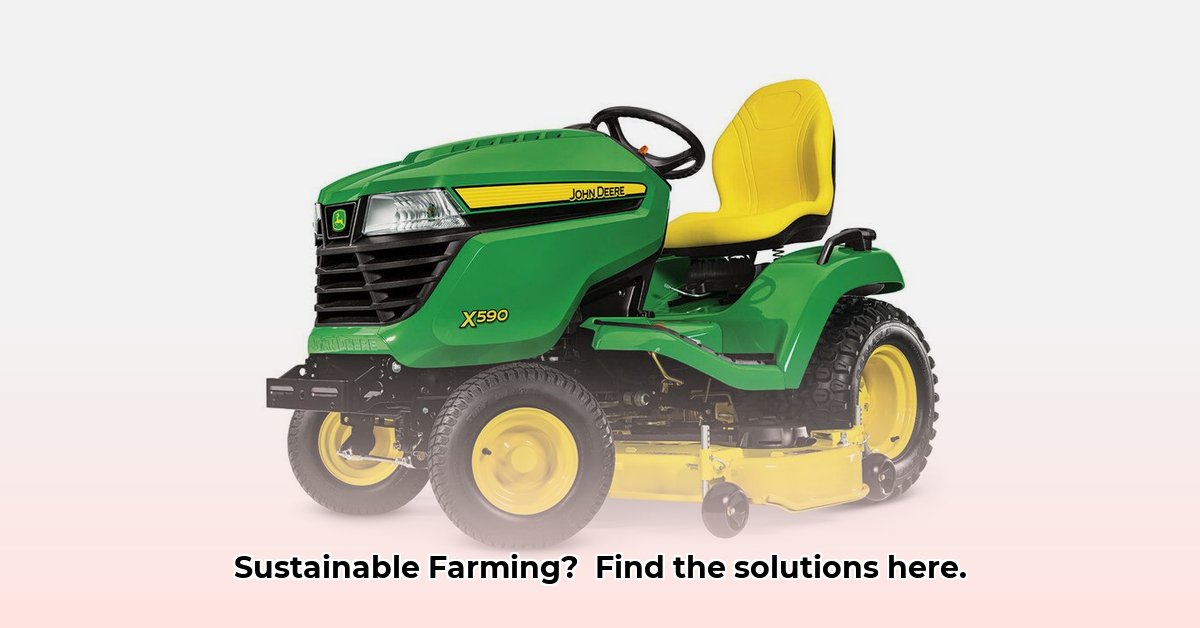
Tractor Supply Baldwinsville NY: Assessing Sustainability in Local Agriculture
Tractor Supply Company (TSC) in Baldwinsville, NY, serves as a vital resource for local farmers and gardeners. However, evaluating its role in promoting sustainable agriculture requires a nuanced examination of both its strengths and weaknesses. This article explores TSC's current practices, identifies areas needing improvement, and offers actionable steps for enhancing sustainability within the Baldwinsville community. For more on sustainable farming equipment, check out this resource.
Supporting Local Sustainable Agriculture: A Balanced Perspective
TSC offers a wide array of products, from animal feed to gardening tools, providing convenient access to essential farming supplies. This accessibility is a significant advantage for local farmers. However, the lack of comprehensive information regarding the sustainability of its supply chain presents a major challenge. Understanding the origins and production methods of its products is crucial for evaluating its overall environmental impact. "Currently, we lack the crucial transparency needed to fully assess their ecological impact," explains Dr. Emily Carter, Professor of Environmental Science at Syracuse University.
Assessing the Impact: A Critical Analysis
Let's evaluate TSC's contributions to sustainable farming, acknowledging both positive and negative aspects:
Pros:
- Accessibility: The convenient location and wide selection of products readily serve Baldwinsville's agricultural community.
- Product Variety: TSC's diverse inventory caters to various farming needs in the region. This broad offering allows farmers to access a wide range of supplies.
- Community Economic Contribution: As a local business, TSC contributes to the economic health of the community.
Cons:
- Transparency Deficiencies: The absence of readily available information regarding supply chain sustainability hinders informed consumer choices and accurate environmental impact assessments. This lack of detail makes it difficult to evaluate their full commitment to sustainability.
- Limited Organic Options: A more extensive selection of certified organic products would better serve the growing demand for sustainable agricultural practices.
- Packaging Concerns: Minimizing packaging waste would align with broader environmental sustainability goals and reduce landfill contribution from TSC operations.
A Call for Action: Collaborative Steps Towards a Greener Future
Achieving sustainable agriculture requires a collective effort from TSC, local farmers, environmental organizations, and the community at large. Here's a framework for improvement:
For Tractor Supply:
- Conduct a Comprehensive Supply Chain Sustainability Audit: Identify areas for improvement in sourcing and production practices. A thorough audit will enable TSC to pinpoint specific improvements needed.
- Establish Clear, Measurable Sustainability Goals: Develop SMART goals for emissions reduction and sustainable material sourcing, aligning with industry best practices.
- Enhance Transparency and Product Labeling: Clearly label products with information about sustainability certifications and product origins. This will empower consumers to make environmentally conscious choices.
- Partner with Local Sustainable Farms: Promote the adoption of sustainable agricultural practices by collaborating directly with local farms committed to environmental sustainability. This builds a more sustainable supply chain.
For Local Farmers and Gardeners:
- Prioritize Sustainably Sourced Products: Make conscious purchasing decisions, opting for products with relevant certifications whenever possible.
- Advocate for Change: Communicate directly with TSC to express demand for a greater selection of sustainable products and improved transparency. Consumer preferences influence supply choices.
- Support Local Sustainable Businesses: Prioritize purchasing from businesses that demonstrate a strong commitment to sustainable and responsible agricultural practices.
For Environmental Organizations:
- Engaging with Tractor Supply: Collaborate directly with TSC to encourage sustainable practices, offering support and expertise.
- Community Education: Conduct workshops and outreach programs to educate the community about sustainable farming and responsible consumption.
For the Baldwinsville Community:
- Conscious Consumer Choices: Support businesses that prioritize sustainability and environmental stewardship.
- Building Community Partnerships: Encourage and foster collaboration between TSC, local sustainable agriculture initiatives, and environmental organizations.
How to Source Sustainable Farming Supplies from Tractor Supply
Successfully sourcing sustainable farming supplies from TSC necessitates a proactive and informed approach:
- Seek Certifications: Look for products certified by reputable organizations like USDA Organic or those with similar environmental certifications.
- Consider Material Sourcing: Choose supplies made from recycled or sustainably managed materials, such as lumber with FSC certification.
- Prioritize Product Durability: Invest in durable, long-lasting tools and equipment to minimize waste and reduce the frequency of replacement purchases.
- Assess Energy Efficiency: Opt for energy-efficient equipment whenever possible. Reduce energy use reduces costs and your carbon footprint.
- Engage with TSC Staff: Ask questions about the environmental impact of products and encourage them to stock more sustainable options. Your feedback directly impacts TSC's purchasing decisions.
Evaluating TSC’s Sustainability Performance: A Balanced Perspective
While TSC's commitment to sustainability is evident, continued improvement is necessary. Increased transparency in reporting and a more detailed plan for addressing Scope 3 emissions remain crucial steps. The journey towards sustainable agriculture demands continuous evaluation and iterative progress.
Your Role in Shaping a Sustainable Future
The future of sustainable agriculture in Baldwinsville hinges on collaborative action. Informed decision-making, active engagement with TSC, and a commitment to promoting sustainable practices among all stakeholders are essential for building a greener and more resilient agricultural community.